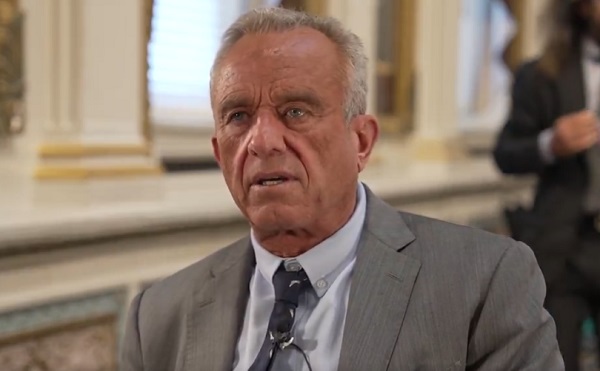Alberta
Potential investment manager for an Alberta pension plan—here are the facts

From the Fraser Institute
As discussions around Alberta’s potential withdrawal from the Canada Pension Plan (CPP) continue, commentators have bombarded Albertans (and Canadians more generally) with sometimes misleading rhetoric, which can undermine the public’s understanding of this key issue. Albertans—and Canadians broadly—need facts to make well-informed decisions.
One key issue has been the potential investment manager for an Alberta pension plan. Specifically, commentators have implied that by leaving the CPP, Albertans retirement funds would no longer be managed by the Canada Pension Plan Investment Board (CPPIB) but rather by the Alberta Investment Management Corporation (AIMCo), which manages several public funds and pensions in the province.
This is not necessarily the case. The province has the option to retain the CPPIB as its investment manager, contract with AIMCo, create a new provider, or contract with the private sector. Put simply, an independent Albertan pension plan has options other than contracting with AIMCo.
But for argument’s sake, let’s assume AIMCo was chosen as the investment manager for an Alberta pension plan. There’s quite a bit of confusion regarding AIMCo that should be clarified. Perhaps most commonly, critics of AIMCo emphasize that the CPPIB has averaged 10 per cent annual returns over the past decade, higher than AIMCo’s 7.2 per cent.
While true, the CPPIB rate of return is distinct from the rate of return earned by contributors to the CPP. Put differently, an individual’s rate of return is not the same as the fund’s rate of return because of the way the CPP was originally designed. Some of the commentary written on this issue has implied that the lower rates of return at AIMCo would influence the benefits received by Alberta retirees. In fact, the retirement benefits Canadians receive from the CPP, and from a comparable Alberta pension plan, are based on several unrelated factors including how many years they’ve worked, their annual contributions and the age they retire. This is key since the CPP and a potential Alberta pension plan are largely based on current workers paying for current retirees, or what’s known as a pay-as-you-go system. Estimates suggest Canadian workers born in 1993 or later can expect a real rate of return of just 2.5 per cent from the CPP.
Given the pay-as-you-go nature of the plan, the key for the CPP, and one assumes for an independent Alberta pension plan, is that the fund earns a rate of return that allows for sustainable payments to retirees over time. The current required rate of return for the CPPIB is 6.0 per cent, which both it and AIMCo exceed.
Moreover, AIMCo, unlike the CPPIB, is constrained by the investment policies of each individual pension fund that it manages. Indeed, unlike the CPPIB, AIMCo is responsible for managing the funds of numerous pension plans, each with their own investment objectives, risk tolerances and asset mixes AIMCo must follow.
For instance, the Management Employees Pension Plan, one of AIMCo’s largest pension funds, requires that 20 per cent to 45 per cent of the market value of the plan’s assets be invested in “inflation sensitive” investments, which include real estate, renewable resources and other assets that may have lower returns compared to alternatives such as investments in private equity. These constraints can limit AIMCo’s overall rate of return, while the CPPIB, unencumbered by the investment policies of other pension funds, has the flexibility to invest according to its core objective, which is to maximize returns adjusted for risk. Put differently, Albertans could grant AIMCo the same flexibility—it all depends on the investment policy implemented if an Alberta pension plan were created.
Finally, opponents also argue that the CPPIB fund’s size (more than $575 billion) makes it superior to any potential provincial fund. Yet the evidence suggests that despite its size, the CPP is not a low-cost pension plan. In fact, according to an analysis by Philip Cross, former chief analyst at Statistics Canada, the CPP’s cost at 1.07 per cent of assets was higher than the other analyzed pension plans, which ranged from 0.34 per cent to 1.02 per cent. And the CPP’s costs have skyrocketed from $4 million in 2000 to 4.4. billion annually, largely due to an increase in staff and compensation. For perspective, the CPPIB had only five employees in 2000; by 2020 it employed nearly 2,000 people. And critically, these changes have not increased the fund’s net returns.
Ultimately, it will be up to Albertans to decide if they want to opt out of the CPP for an Alberta pension plan, but to make that decision, they must be armed with facts. That includes clarifying some misunderstanding on two potential investment managers—CPPIB and AIMCo.
2025 Federal Election
Next federal government should recognize Alberta’s important role in the federation

From the Fraser Institute
By Tegan Hill
With the tariff war continuing and the federal election underway, Canadians should understand what the last federal government seemingly did not—a strong Alberta makes for a stronger Canada.
And yet, current federal policies disproportionately and negatively impact the province. The list includes Bill C-69 (which imposes complex, uncertain and onerous review requirements on major energy projects), Bill C-48 (which bans large oil tankers off British Columbia’s northern coast and limits access to Asian markets), an arbitrary cap on oil and gas emissions, numerous other “net-zero” targets, and so on.
Meanwhile, Albertans contribute significantly more to federal revenues and national programs than they receive back in spending on transfers and programs including the Canada Pension Plan (CPP) because Alberta has relatively high rates of employment, higher average incomes and a younger population.
For instance, since 1976 Alberta’s employment rate (the number of employed people as a share of the population 15 years of age and over) has averaged 67.4 per cent compared to 59.7 per cent in the rest of Canada, and annual market income (including employment and investment income) has exceeded that in the other provinces by $10,918 (on average).
As a result, Alberta’s total net contribution to federal finances (total federal taxes and payments paid by Albertans minus federal money spent or transferred to Albertans) was $244.6 billion from 2007 to 2022—more than five times as much as the net contribution from British Columbians or Ontarians. That’s a massive outsized contribution given Alberta’s population, which is smaller than B.C. and much smaller than Ontario.
Albertans’ net contribution to the CPP is particularly significant. From 1981 to 2022, Alberta workers contributed 14.4 per cent (on average) of total CPP payments paid to retirees in Canada while retirees in the province received only 10.0 per cent of the payments. Albertans made a cumulative net contribution to the CPP (the difference between total CPP contributions made by Albertans and CPP benefits paid to retirees in Alberta) of $53.6 billion over the period—approximately six times greater than the net contribution of B.C., the only other net contributing province to the CPP. Indeed, only two of the nine provinces that participate in the CPP contribute more in payroll taxes to the program than their residents receive back in benefits.
So what would happen if Alberta withdrew from the CPP?
For starters, the basic CPP contribution rate of 9.9 per cent (typically deducted from our paycheques) for Canadians outside Alberta (excluding Quebec) would have to increase for the program to remain sustainable. For a new standalone plan in Alberta, the rate would likely be lower, with estimates ranging from 5.85 per cent to 8.2 per cent. In other words, based on these estimates, if Alberta withdrew from the CPP, Alberta workers could receive the same retirement benefits but at a lower cost (i.e. lower payroll tax) than other Canadians while the payroll tax would have to increase for the rest of the country while the benefits remained the same.
Finally, despite any claims to the contrary, according to Statistics Canada, Alberta’s demographic advantage, which fuels its outsized contribution to the CPP, will only widen in the years ahead. Alberta will likely maintain relatively high employment rates and continue to welcome workers from across Canada and around the world. And considering Alberta recorded the highest average inflation-adjusted economic growth in Canada since 1981, with Albertans’ inflation-adjusted market income exceeding the average of the other provinces every year since 1971, Albertans will likely continue to pay an outsized portion for the CPP. Of course, the idea for Alberta to withdraw from the CPP and create its own provincial plan isn’t new. In 2001, several notable public figures, including Stephen Harper, wrote the famous Alberta “firewall” letter suggesting the province should take control of its future after being marginalized by the federal government.
The next federal government—whoever that may be—should understand Alberta’s crucial role in the federation. For a stronger Canada, especially during uncertain times, Ottawa should support a strong Alberta including its energy industry.
Alberta
Province announces plans for nine new ‘urgent care centres’ – redirecting 200,000 hospital visits

Expanding urgent care across Alberta
If passed, Budget 2025 includes $17 million in planning funds to support the development of urgent care facilities across the province.
As Alberta’s population grows, so does the demand for health care. In response, the government is making significant investments to ensure every Albertan has access to high-quality care close to home. Currently, more than 35 per cent of emergency department visits are for non-life-threatening conditions that could be treated at urgent care centres. By expanding these centres, Alberta’s government is enhancing the health care system and improving access to timely care.
If passed, Budget 2025 includes $15 million to support plans for eight new urgent care centres and an additional $2 million in planning funds for an integrated primary and urgent care facility in Airdrie. These investments will help redirect up to 200,000 lower-acuity emergency department visits annually, freeing up capacity for life-threatening cases, reducing wait times and improving access to care for Albertans.
“More people are choosing to call Alberta home, which is why we are taking action to build capacity across the health care system. Urgent care centres help bridge the gap between primary care and emergency departments, providing timely care for non-life-threatening conditions.”
“Our team at Infrastructure is fully committed to leading the important task of planning these eight new urgent care facilities across the province. Investments into facilities like these help strengthen our communities by alleviating strains on emergency departments and enhance access to care. I am looking forward to the important work ahead.”
The locations for the eight new urgent care centres were selected based on current and projected increases in demand for lower-acuity care at emergency departments. The new facilities will be in west Edmonton, south Edmonton, Westview (Stony Plain/Spruce Grove), east Calgary, Lethbridge, Medicine Hat, Cold Lake and Fort McMurray.
“Too many Albertans, especially those living in rural communities, are travelling significant distances to receive care. Advancing plans for new urgent care centres will build capacity across the health care system.”
“Additional urgent care centres across Alberta will give Albertans more options for accessing the right level of care when it’s needed. This is a necessary and substantial investment that will eventually ease some of the pressures on our emergency departments.”
The remaining $2 million will support planning for One Health Airdrie’s integrated primary and urgent care facility. The operating model, approved last fall, will see One Health Airdrie as the primary care operator, while urgent care services will be publicly funded and operated by a provider selected through a competitive process.
“Our new Airdrie facility, offering integrated primary and urgent care, will provide same-day access to approximately 30,000 primary care patients and increase urgent care capacity by around 200 per cent, benefiting the entire community and surrounding areas. We are very excited.”
Alberta’s government will continue to make smart, strategic investments in health facilities to support the delivery of publicly funded health programs and services to ensure Albertans have access to the care they need, when and where they need it.
Budget 2025 is meeting the challenge faced by Alberta with continued investments in education and health, lower taxes for families and a focus on the economy.
Quick facts
- The $2 million in planning funds for One Health Airdrie are part of a total $24-million investment to advance planning on several health capital initiatives across the province through Budget 2025.
- Alberta’s population is growing, and visits to emergency departments are projected to increase by 27 per cent by 2038.
- Last year, Alberta’s government provided $8.4 million for renovations to the existing Airdrie Community Health Centre.
Related information
-

 Uncategorized13 hours ago
Uncategorized13 hours agoPoilievre on 2025 Election Interference – Carney sill hasn’t fired Liberal MP in Chinese election interference scandal
-

 Business23 hours ago
Business23 hours agoCuba has lost 24% of it’s population to emigration in the last 4 years
-

 Business2 days ago
Business2 days agoLabor Department cancels “America Last” spending spree spanning five continents
-

 2025 Federal Election2 days ago
2025 Federal Election2 days agoCanadian Banks Tied to Chinese Fentanyl Laundering Risk U.S. Treasury Sanctions After Cartel Terror Designation
-

 Health2 days ago
Health2 days agoRFK Jr. says ‘everything is going to change’ with CDC vaccine policy in Michael Knowles interview
-

 Automotive2 days ago
Automotive2 days agoTrump warns U.S. automakers: Do not raise prices in response to tariffs
-

 Business1 day ago
Business1 day agoTariff-driven increase of U.S. manufacturing investment would face dearth of workers
-

 International23 hours ago
International23 hours agoTrump signs executive order to make Washington D.C. “safe and beautiful”





